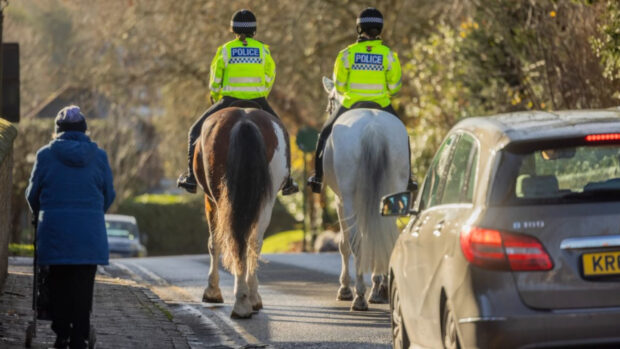The invention of artificial skin by two US equine surgeons is helping veterinary students improve their surgical skills.
Students at Colorado State University (CSU) and 140 other veterinary, medical and nursing schools across the US are now training with patented SurgiReal body wall models, developed by Dr Dean Hendrickson and Dr Fausto Bellezzo.
The SurgiReal products allow students to refine surgical skills on realistic models instead of old standbys such as banana skins, carpet scraps, orange peels and cadaver examples — chiefly pigs’ feet.
Unlike these substitutes, the SurgiReal training models have multiple layers and exude fake blood.
The inventors set up SurgiReal in 2012 with the help of CSU Ventures, a branch of Colorado State University.
This spring they won the CSU Ventures Award for innovative excellence and the company aims to increase sales to $400,000 this year.
“I think you could say the models are becoming a standard. The next generation of medical students will say, ‘We saw something where people used carpet pads – really?’,’’ said Dr Hendrickson.
“I had had a donor say, ‘You’re turning the world upside down with this,’ and I said, ‘No, I’m just trying to train surgeons,” he added.
Paul Ryan, a fourth-year CSU veterinary student said: “These models are as close as I’ve ever seen to the real thing. It’s an incredible improvement over fruits and vegetables.”
Dr Hendrickson began to think about creating a better model in 1993 when he was at the University of Wisconsin.
Inspired by movie effects and a desire to better prepare students, he thought about making something that felt like the real tissues.
Someone he knew at Disney put him in touch with DuPont, which supplied silicone for movie effects.
“We had just finished a surgery lab, and I remember thinking the students weren’t ready for the live-animal experience. We have to do better because the animals deserve that,” said Dr Hendrickson.
He won a small grant and tinkered with materials but his ideas didn’t come to fruition until 2009 when he and Bellezzo started experimenting with silicones, moulds, filaments and fake blood.
Steve Foster, director of business development for CSU Ventures said SurgiReal “will help students become better practitioners of veterinary and human medicine.”



